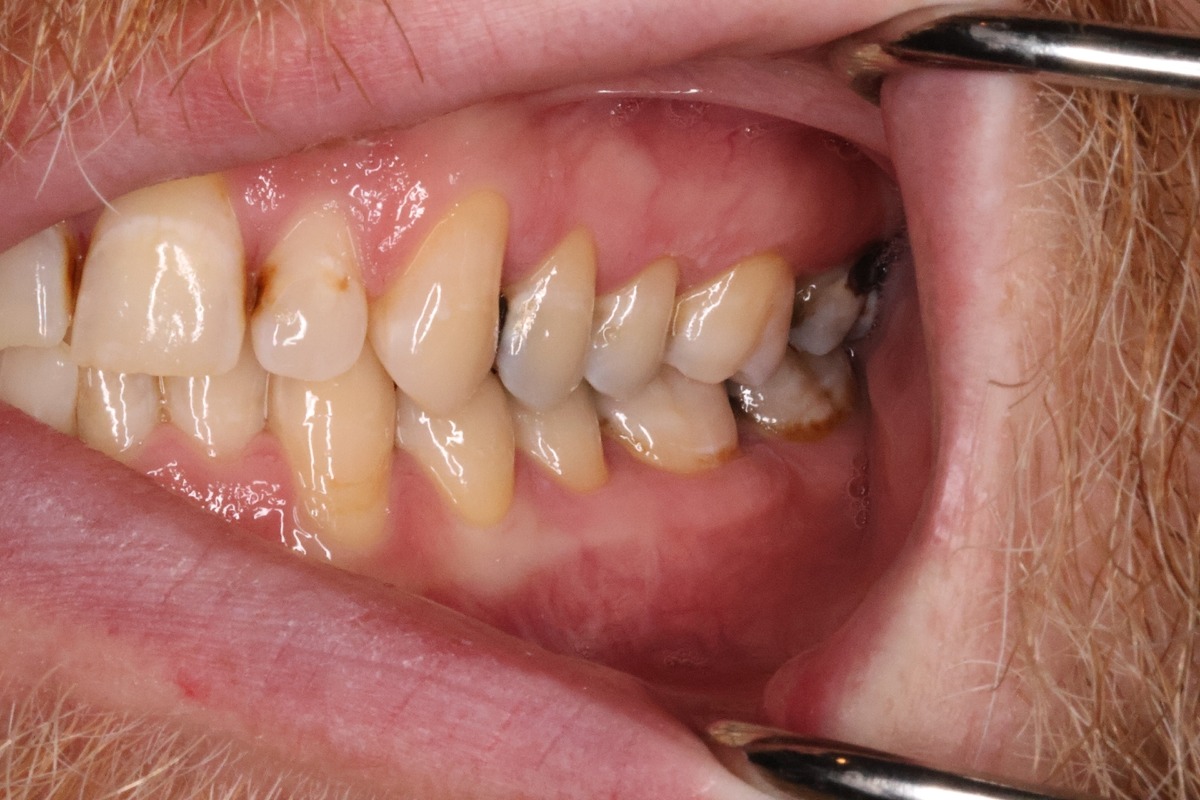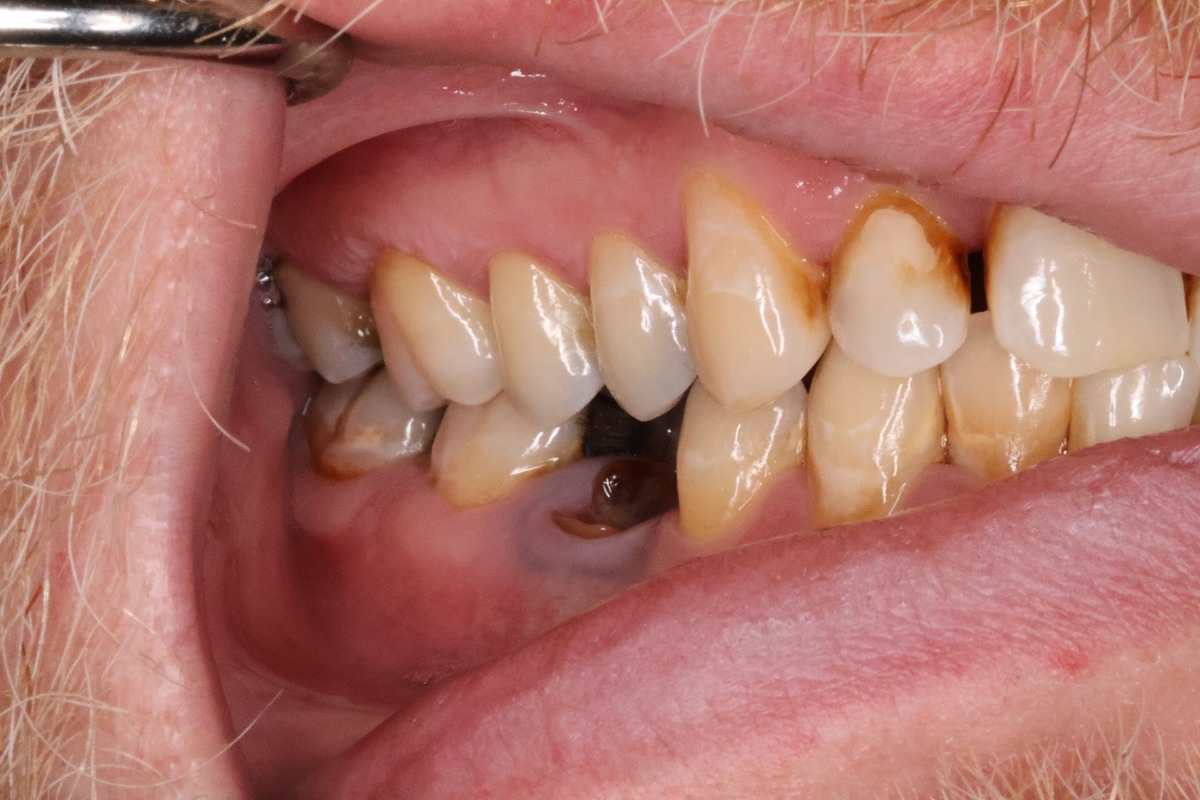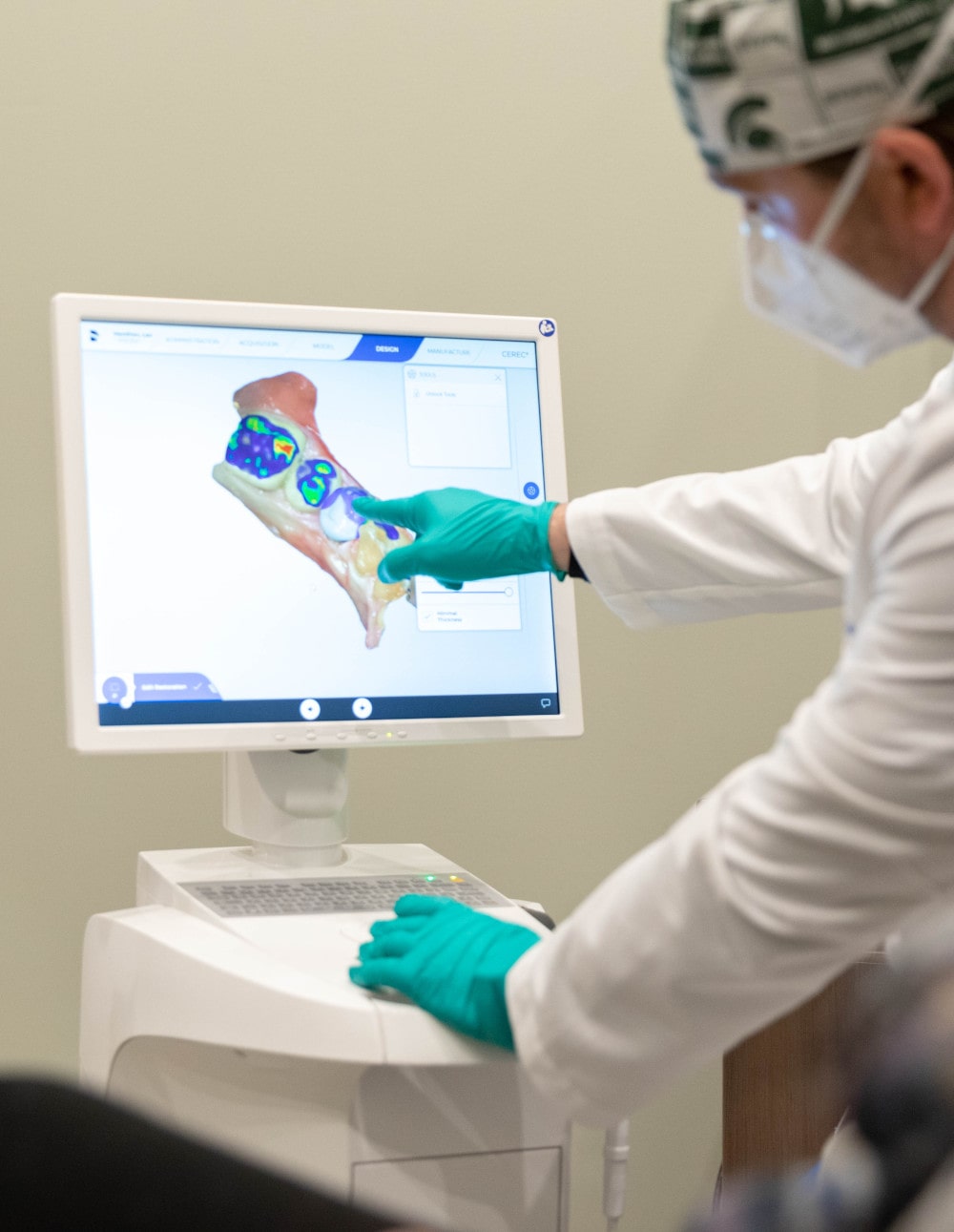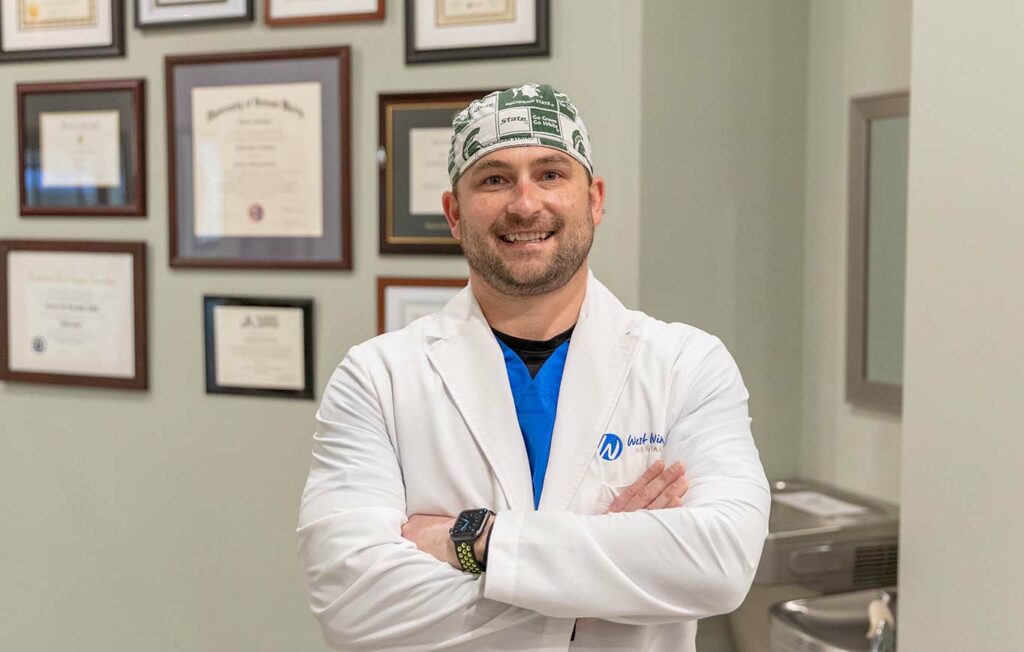Can Gum Disease Kill You?
Gum disease, or periodontal disease, can’t kill you, but recent studies have found a connection between untreated gum disease and cardiovascular health. So, while the disease itself doesn’t cause death directly, it can be a signal that you need to be more mindful of your overall health.
Beyond cardiovascular disease, periodontal disease can contribute to a range of health issues, including diabetes, respiratory illness, cancer, and Alzheimer’s. Because of this, early detection is crucial to your long-term health, as it allows you to diagnose and treat moderate periodontitis before it evolves into advanced gum disease.
Symptoms of Periodontal Disease
Gum disease damages the soft tissue around your teeth, which can lead to a number of serious issues. Left untreated, it can erode the bone structure that supports your teeth, causing them to loosen or fall out completely. If you notice any of the following signs of gum disease, you’ll want to schedule an exam with your dental hygienist.
Bad Breath
Persistent bad breath that doesn’t go away, even after you brush your teeth or use an antiseptic mouthwash, is a symptom of gum disease. Since periodontal disease is a bacterial infection, it’s not uncommon for patients to have ‘perio breath,’ which often smells sulfurous, like rotten eggs.
Swollen Gums
Another early symptom is red, puffy, or swollen gums. As oral bacteria build up on the gum line, their waste products form a film on the teeth. When this film hardens, it can cause the patient’s gums to become red, inflamed, or painful to the touch, a condition called gingivitis.
Bleeding Gums
Healthy gums don’t bleed. Untreated gingivitis can cause sensitive gums, which are more likely to bleed when brushing your teeth. Worse, though, is that gingivitis can evolve into periodontitis. While gingivitis can be cured, once it’s developed into gum disease, it can only be managed.
Receding Gum Tissue
With severe gum disease, it’s not uncommon for the gums to recede. As they pull away from the tooth, they can expose the roots, which often causes sensitivity, especially to hot and cold. And, in most cases, receding gums will increase your risk of developing cavities.


Loose Teeth or Tooth Loss
As gum disease eats away at the gum tissue and bone supporting your teeth, there’s a very real possibility of tooth loss. If you notice loose teeth, wiggly teeth, or new gaps between teeth, you’ll want to seek professional dental care to preserve your oral health.
Difficulty Eating
Whether it’s the mental fear of damaging a tooth or the physical pain caused by a gum infection, periodontal disease can make it difficult to eat the foods you love. In fact, this may be the reason that patients with gum disease have a higher risk of developing diabetes.
Can You Treat Gum Disease?
While it is possible to treat gum disease, it’s important to know that it cannot be cured. But, with proper care, managing gum disease and its symptoms is possible. By speaking with your dentist or a gum specialist, you can take proactive steps to preserve the health of your teeth and gums.
Scaling and Root Planing
A two-part, nonsurgical process, scaling and root planing first removes plaque and tartar buildup above your gum line. Next, your gum tissue is moved and your tooth roots are gently smoothed, which helps to promote reattachment.
Good Oral Hygiene Practices
After root planing, it’s essential that you continue to practice good oral hygiene habits. You need to brush your teeth twice per day with a fluoride toothpaste, floss at least once per day, and use an antiseptic mouth rinse.
Bone Grafting and Surgical Treatments
With extreme cases of disease, surgical procedures may be necessary, such as a bone graft to repair lost bone. Usually, a bone graft is used to slow the progression of gum disease, increase the amount of bone usable for implants, or improve the aesthetics of the patient’s smile.

Is Periodontal Disease Contagious?
While it hasn’t been completely proven in clinical trials, there are reasons to believe periodontal disease could spread from person to person. Since it’s bacterial, it’s not unreasonable to think that it could spread through contact, including via saliva. And, gum disease could potentially be contracted via sharing drinkware, sharing eating utensils, and kissing.
But, with good oral hygiene, periodontal disease is almost 100% preventable. If your partner has it, you’ll want to visit the dentist regularly, avoid the risk factors, and brush your teeth regularly to prevent gum disease from potentially developing.
Tips to Prevent Gum Disease
Floss and Brush Your Teeth Every Day
Periodontal disease thrives when there is a lack of good oral hygiene habits. Brushing regularly is an easy, everyday step that you can take to protect your teeth and gums, safeguard your oral health, and stave off the development of gum disease.
Regularly Visit a Dental Hygienist
As a way to monitor your risk factors and identify the early stages of gum disease, there’s simply no substitute for professional dental care. And, in this case, early detection is critical. A hygienist can detect bleeding gums, chronic inflammation, plaque buildup, and other complications before they develop into major issues.
Quit Using Tobacco Products
Beyond being a deadly habit, smoking weakens your body’s immune system, which can make it difficult to fight off a gum infection. In fact, people who smoke are twice as likely to develop gum disease compared to people who don’t. So, if you’re hoping to avoid gum disease, then quitting smoking should be your first step.
Ensure Your Diet Is Balanced
In general, a balanced diet is great for your overall health. But, it’s also specifically great for your dental health. A diet rich in vitamins, nutrients, and minerals helps to boost your immune system and prevent periodontal disease. And, of course, you should attempt to limit your consumption of sugary foods.
Drink Lots of Water
Saliva is the first line of defense against plaque. Every time you eat, your mouth produces saliva in an attempt to remove plaque, protect your teeth, and keep your mouth clean. But, if you aren’t properly hydrated, your body may struggle to produce enough saliva to do the job. So, to ensure it’s up to the task, drink plenty of water and avoid sugary drinks.
So, Is Gum Disease Deadly?
Untreated gum disease can be incredibly damaging to your oral hygiene and overall health. But, it can’t kill you. It can, however, be a precursor to serious, systemic health issues, such as tooth loss, heart disease, lung disease, lung cancer, and other serious health conditions.
But, can gum disease kill you? No, but it will often drastically decrease your quality of life and, in some cases, increase your risk of other life-threatening conditions. Of course, your primary goal should always be preventing gum disease, but West Wind Dental can also help if you need gum disease treatment or periodontal treatments to pursue a healthy lifestyle.
Want to Ensure Your Long-Term Oral Health?
At West Wind Dental, we understand how gum disease can negatively impact a person’s life. It’s not just oral health, it’s everything: heart health, mental health, and emotional health. And, while we know that gum disease can’t kill you, we believe that it can have a devastating effect on your life.
From heart disease to Alzheimer’s, diabetes to tooth loss, the ill effects can be far-reaching. But, we’re here to help. Left untreated, gingivitis and gum disease can snowball into a wide range of health conditions. So, we encourage you to reach out to us to discuss your concerns.
Backed by years of experience, our team is the go-to dentist for gum disease in Portage, MI. No matter if you’re in the advanced or early stages of gum disease, we’re able to provide treatment. Please, if you’d like to discuss root planing, deep cleaning, or regular dental visits, don’t hesitate to contact us today.

Dr. Andrew Hamilton, DDS, FAGD
Dr. Hamilton is an active member of several professional organizations including the American Dental Association (ADA), the Michigan Dental Association (MDA), the Kalamazoo Valley District Dental Society (KVDDS), the American Academy of Implant dentistry (AAID), the International Academy of Facial Aesthetics (IAFA) and also attends courses with the Pikos Institute in Northwest Florida. He is a member of the International Congress of Oral Implantologists (ICIO), has achieved fellowship status in the International Dental Implant Association (IDIA) and in the Academy of General Dentistry (FAGD), has graduated from and is an alumnus of the Kois Center program in Seattle, and is on the faculty of the Global Dental Implant Academy (GDIA).
The little spare time left over is spent Steelhead and Salmon fishing and the occasional round of golf.
